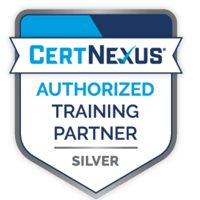After only 30 seconds of meeting someone, a long-lasting impression is created. Practicing appropriate etiquette and behavior will reinforce your value in the workplace. Take a look at 60 “Do’s and Don’ts” for disability etiquette that should be practiced in the workplace.

Workplace Disability Etiquette
PROFESSIONAL GUIDELINES
DO:
- Maintain eye contact, speak clearly, and shake hands or verbally greet the employer.
- Focus on abilities: emphasize what you can do, rather than what you cannot do.
- Educate others about what you are able to do and what accommodations are the most effective.
- Self-advocate for your needs.
- Perform at your highest level. Employers should expect the same level of performance from you as another employee.
- Realize that the more comfortable you are discussing your disability, the more comfortable your employer and coworkers will be.
DO NOT:
- Assume that an employer knows what you need to best perform your duties.
DISCLOSING YOUR DISABILITY
DO:
- Introduce yourself, your disability and how you will perform the job. Explain this to the employer, as they may have no experience supervising or interviewing people with disabilities.
- Give the employer permission to ask questions about your disability as it relates to the job (Your medical history is confidential under the HIPAA Privacy Rule).
DISABILITY-SPECIFIC CONSIDERATIONS
SPEECH
DO:
- Speak as clearly as possible
- Practice clear articulation.
- Take your time speaking.
- Give the other person permission to ask you to repeat what you’ve said.
- Repeat words until your employer understands.
- Use written words or communication device if necessary.
- Work in a quiet environment.
WHEELCHAIR AND MOBILITY DEVICE USERS
DO:
- Make sure your device is clean.
- Call an employment site in advance to make sure the environment is accessible. If it is not accessible, state the accommodations that may be needed.
DO NOT:
- Carry multiple bags or coats on your device.
- Place stickers on your device. If you must use tape, get black duct tape.
HEARING/VISION IMPAIRMENT
DO:
- Communicate with employers in advance about the accommodations you need in the workplace .
- Inform employers if you need them to speak louder or quieter.
WORKPLACE Disability ETIQUETTE
DO:
- Dress appropriately.
- Keep personal conversations to a minimum.
- Remain punctual. Give yourself plenty of time to arrive to work and get settled.
- Be mindful of break length.
- Keep your work area tidy.
- Be careful with spelling, grammar, content, and humor in an email.
- Respect others’ privacy and ownership (knock before entering another’s office, not barging in another’s cubicle, etc.)
- Speak quietly in a work setting to avoid distracting others.
- Use polite and courteous language; absolutely no profanity
DO NOT:
- Gossip in the work place. Ask yourself, “Would I mind if what I am saying is posted on a billboard?” If not, do not say it at work.
- Use cell phone or other electronics, unless it is work-related.
- Eat food with strong odors at your desk.
ABILITY-SPECIFIC TIPS
The majority of individuals do not have a cognitive disorder, but rather a delay in processing speech.
SPEECH AND COGNITIVE
DO:
- Listen patiently.
- Use clear language and speak slowly.
- Give extra time to process information.
- Work in a quiet environment where it is easier to hear.
- Ask the person to repeat what they said, slower, louder, etc., if needed.
- Ask the person to write or type what they said if speech is not intelligible.
DO NOT:
- Finish the person’s sentences.
- Rush the person.
- Pretend to understand something.
WHEELCHAIR AND MOBILITY DEVICE USERS
DO:
- Respect personal property.
- Speak at eye level with the person.
- Remain aware of their reaching limit.
- Keep commonly used paths clear of obstruction (trash cans, chairs, boxes).
DO NOT:
- Lean on wheelchairs, hang items on chairs, or push chairs unless asked.
HEARING IMPAIRMENT
DO:
- Use eye contact.
- Speak to the person, not to their interpreter.
- Speak in a normal tone, unless asked to do otherwise.
- Get their attention by tapping them on the shoulder, flashing the lights, or waving your hands.
- Individuals with hearing impairment may use a Telecommunications Device for the Deaf (TDD). When communicating, say “Go ahead” to signal to the other person that they may begin speaking.
VISION IMPAIRMENT
DO:
- Introduce yourself and others who are present. Identify your role (“I am a recruiter”).
- Notify the person if you are walking to another area or ending the conversation.
- Offer the person your arm when walking.
- Give clear and concise directions.
- Always ask to pet someone’s service animal. Service animals are not just pets, but a working assistant.
DO NOT:
- Grab someone’s arm; it may result in a loss of balance.
- Make noises at the service animal.












